Our History
While the movement began hundreds of years ago, with the first organized resistance, we’ll start the story of our roots with the meeting of our co-founders. (This history was adapted from an earlier version developed by Diana Dunn and Ronald Chisom.)
Dr. James Norman Dunn, a professor at Antioch College in Yellow Springs, Ohio and a long-time, lifetime community organizer, poet, song writer, singer, visionary, historian and co-founder of a community based organization called HUMAN (Help Us Make A Nation) will meet Ronald Chisom, a community organizer from New Orleans, Louisiana, and a long time, lifetime “man of the people, a pure “culturalist,” rooted deeply in the sights, sounds, and smells of his native New Orleans and co-founder of a community-based organization called TCIA (Treme Community Improvement Association).
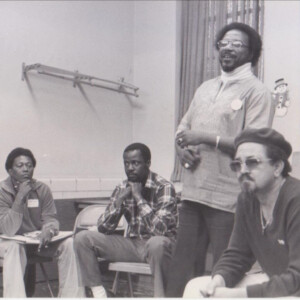
The two will first meet in New York City under the auspices of the United Methodist Church Voluntary Services Program (UMVS), as grantees coming together to share ideas and further develop their communities.
On a train ride from NYC to Philadelphia to attend a Black Independent Political Party event, they committed to building an organization together.
Organizing prior to PISAB
Jim and HUMAN had been building in Ohio an organization that went beyond local issues but one that tied its work in Yellow Springs to the freedom movement in South Africa, to police brutality cases in Springfield, Ohio, to anti-ROTC organizing efforts on high school campuses in Cincinnati. Diana Robinson (later Dunn) will co-found HUMAN. Bill Chappelle will be there along with many others. Jim will meet Rev. Daniel Buford and Michael Washington as they organize YAM: Youth Against Militarism, working with youth to oppose the militarization of Cincinnati’s high school campuses. And one branch of what will become The People’s Institute begins to lay down its roots.
Ron and TREME were building in New Orleans an organization that focused on housing conditions and neighborhood preservation. Along with co-founder Jim Hayes, the Treme organization would train a generation of organizers focused not so much on issues as culture work and people gaining a sense of their own power to determine the future. Ron and Jim would meet Barbara Major, then directing Louisiana’s Hunger Coalition and working in the St. Thomas/Irish Channel neighborhood and David Billings, a United Methodist minister and social services provider working also in Treme at that time. And the second branch of what will become The People’s Institute lays downs its roots.
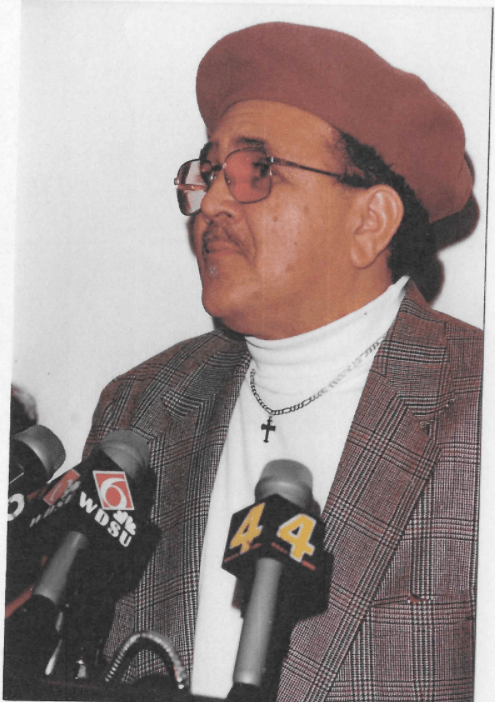
A Collective Vision
By the late 1970’s, The People’s Institute founders were meeting more and more often with the support of UMVS (thanks especially to the work of Shelia Collins as the Director of UMVS) and under the auspices of the Southern Organizing Committee (SOC) based at that time in Birmingham, AL, and under the leadership of Rev. Fred Shuttlesworth (thanks especially to the work of Ann Braden and Rev. Dr. C.T. Vivian).
To both Jim and HUMAN, and Ron and TREME, it is the need for more organizers that inspires them.
SOC calls for a thousand organizers to be trained in the South, they begin to talk of a school for organizers. At the same time, HUMAN is sponsoring an annual cultural celebration of organizing in Yellow Springs, called HUMAN DAY. By the late l970’s and early l980’s, organizers and culturalists from around the nation are attending, including such folk as Holly Near, the Rev. Frederick Douglas Kirkpatrick, Pete Seeger, the Farm Labor Organizing Committee (FLOC), The Concerned Fisherman’s Organization of Plaquemines Parish, LA, and the Sisterhood of Black Single Mothers out of Brooklyn, NY.
HUMAN DAY will be the spiritual forebearer of The People’s Institute Advanced Training held annually from 1980 (until Hurricane Katrina in 2005). It will be at HUMAN DAY in l982 that many people from around the country will first meet the TCHULA 7 and Mayor Eddie James Carthan from Tchula, Mississippi, whose arrests and convictions due to an overtly-racist criminal justice system in Mississippi will lead to the first national exposure for The People’s Institute.
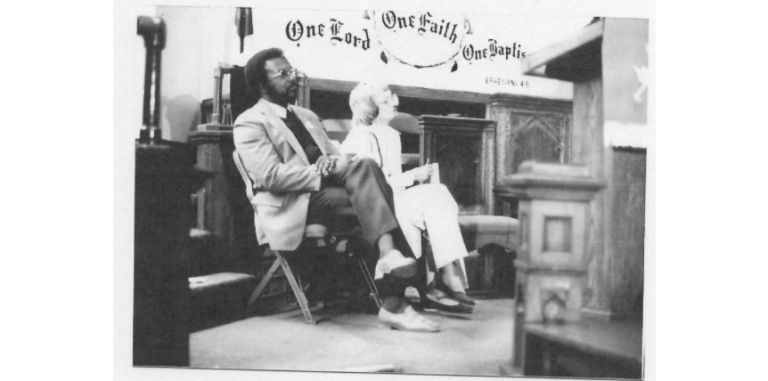
In l980, the People’s Institute for Survival and Beyond was founded:
At a meeting at the Rev Dr. C.T. Vivian’s home in Atlanta, GA, called by Ann Braden and SOC, that Jim Dunn, Ron Chisom, Diana Dunn and others will meet to officially create The People’s Institute for Survival and Beyond. At this meeting an organization for training and equipping effective community organizers who work with humanistic and anti-racist principles for social change is chartered.
The People’s Institute will train community organizers from an anti-racist approach not from an issues or campaign-type approach. It will build on lessons learned from other organizing models, particularly those led and inspired by Saul Alinsky, but The People’s Institute will state without apology that racism is the key barrier to social equity in the United States and must be the foundational understanding of those who would want to make effective social change.
The People’s Institute will say that key to understanding organizing from an anti-racist perspective will be an understanding of not only racism per se, but history as a tool for change and culture as the lifeblood of community. Networking and accountability to community that is value-based and action-oriented will keep us focused and moving towards our vision. These principles continue to guide The People’s Institute for Survival and Beyond.
The original team that by l983 included Jim Dunn, Ron Chisom, Barbara Major, Dan Buford, Diana Dunn, Michael Washington, and David Billings, Core Trainers then included Maria Reinat-Pumarejo (Institute for Latino Empowerment, Puerto, Rico); Kimberley Richards (Southwest Gardens Community Development Center in Farrell, PA); John Morrin (Grand Portage Reservation and Tribal Council, Minnesota);and Monica Walker (St. Paul’s Community Baptist Church, Brooklyn, New York).
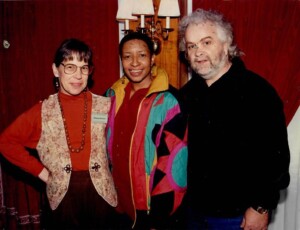
Since l980, the People’s Institute for Survival and Beyond has trained over 2 MILLION people through its 2 1/2 day workshop all over the United States and in other parts of the world.
We’ve worked in just about every state in the Union. We’ve organized and trained in big cities and small towns. We’ve trained on campuses and in the housing developments of the nation. In el barrio and on the reservation. From Pine Apple, Alabama to New York City and from War, West Virginia to San Francisco we’ve been invited to bring “Undoing Racism/Community Organizing” to communities everywhere. Organizers/Trainers with the Institute have been to India and Japan; South Africa and Nicaragua. The Institute has been to Belfast and Pine Ridge. During this time the training team has grown. Today there are more than 100 trainer-organizers, steeped in organizing in their own communities, and facilitating a process of social change wherever we are organized and invited to do so.
Jim Dunn would talk about “building a movement” for social change. This would be the vision that would focus the organizing work of the People’s Institute. The movement was that which would take us beyond mere survival and create a society in which it was possible to “undo” racism. Until his death in February of l989, Jim’s vision of a world that was beyond racism would guide, sustains and train us.
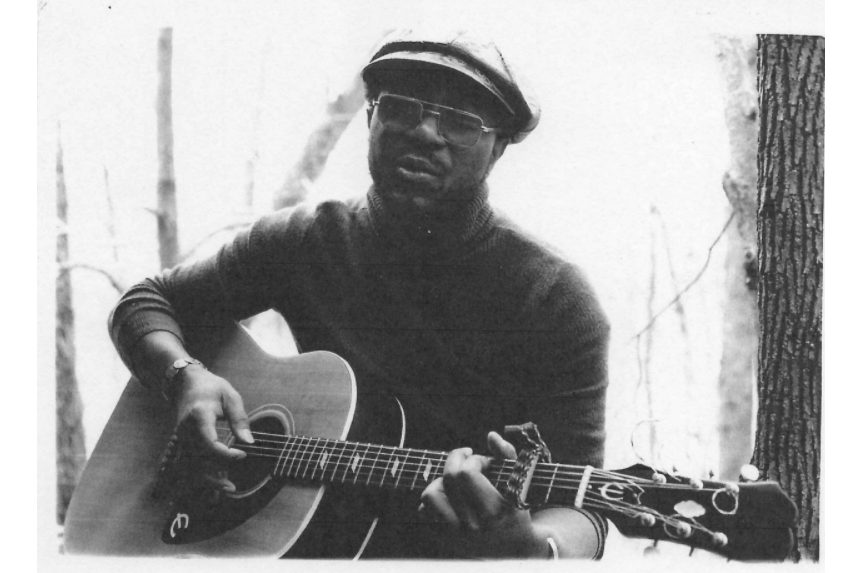
For many years after Jim Dunn’s passing, Ron Chisom served as the Executive Director, working closely with Diana Dunn and others to grow PISAB into a national organizing collective. With Ron guiding the vision after the death of Jim Dunn, The People’s Institute grew tremendously. Crisscrossing the country, sometimes weeks at a time, Ron built a network of relationships that has fueled organizing efforts around the United States. The leadership of Ron Chisom, emerging from the neighborhoods of New Orleans, modeled the principle that change comes from oppressed peoples organized with a sense of their own power — not through service-delivery systems or program-based initiatives that treat communities from a deficit-model rather than as the primary agents of social change.
History of PIYA: People’s Institute Youth Agenda
Our first official youth Undoing Racism® was held in the late 1980s in Plaquemines Parish, with the Fisherman and Concerned Citizens of Plaquemines Parish. The first workshop was held through a local community center, covering all the anti-racist organizing principles.
Soon after, In the early 1990’s work began with youth in the Dayton, Ohio area. The Urban League wrote a proposal for 60-70 youth to attend an “Undoing Racism®” training with PISAB. The group was very diverse both economically and culturally, with representatives from various schools (from rich, mostly white, suburban schools to inner city Dayton public schools).
The ideas that came out of the training included:
- youth need a support group to go back to after the workshop
- that the youth were much more honest than the typical adult and gave voice to what many people think but don’t say
- that the training challenged their philosophical, theoretical base
In 1994, People’s Institute was a partner agency with Agenda for Children, a children’s advocacy organization in New Orleans, to sponsor the annual Kids Count Data Book on Louisiana’s Children. Part of the commitment involved traveling statewide to hold press conferences around the Databook’s release. Ron Chisom, PISAB Executive Director, Diana Dunn, Administrative Director, and Jim Hayes, PISAB Board Member, were the Institute representatives who traveled with the Director of Agenda for Children, Judy Watts. Returning from a press conference in Lake Charles, LA the three began to discuss designing a presentation that made the clear connection between statistics on children and youth and racism, and what it would take bring young people into the Undoing Racism® training. They pursued the idea, received funding from the Foundation for the Mid South, and spent a year working with community partners and young people to learn how young people understood organizing and our anti-racist principles.
During the 1995 PISAB board retreat, one goal included in the two-year plan was to develop an analysis around racism that was applicable to youth. Tayari kwaa Salaam energized that planning process. This included involving more youth in the process and developing a curriculum/workshop. During the following year, they held several workshops with “youth groups” including several colleges, YouthBuild, and Teach for America. During this same time, a group of local youth from New Orleans, under the leadership of PISAB and Agenda for Children, began meeting to explore what youth curriculum would look like.
This local group came to be called the Bridge Group, drawing on the concepts of being the generation that links our elders to younger generations. The group ranged in ages from late teens to early thirties and was diverse: economically, culturally, racially, and educationally. The group quickly came to realize they had to deal with internal dynamics before drawing in youth from a broader arena. One of the very real dynamics was the ways in which racism played out in the group itself.
PIYA hosted a workshop for the Grantmakers Conference in New Orleans and facilitated cultural sharing and a presentation at the Institute’s 17th and 18th National Advanced Trainings in Waveland, MS.
Afterwards, the People’s Institute Youth Agenda set out to continue this vision. In a collaborative effort with the St. Thomas Drill Team, Black Men United for Change, the Drill Team Parent’s Committee, the Kuji Center and many other allies from the St. Thomas/Irish Channel Community, the People’s Youth Freedom School was first organized during the summer of 1997. A process was created for youth, ages 10-16, around the People’s Institute “Undoing Racism®”/Community Organizing model where youth learn about anti-racist principles, history, culture, community organizing skills, and leadership development.
The Freedom School consisted of 22 youth from the St. Thomas Drill Team.The Freedom School curriculum covered the principles of the “Undoing Racism®” workshop over the course of five weeks through various learning activities and field trips.
People’s Youth Freedom School and the Freedom School Philosophy
In the summer of 1964, SNCC (Student Nonviolent Coordinating Committee), CORE (Congress of Racial Equity), and the NAACP (National Association for the Advancement of Colored People) cooperated in coordinating the now well known “Freedom Summer” of African-American voter registration and other Civil Rights activism centered in Mississippi. A critical part of that summer involved the organization of “Freedom Schools” which sought to educate Black Mississippi youth about political rights, African-American history, and race relations—education which they certainly did not receive in Mississippi public schools.
The “Freedom Schools” further sought to offer some assistance in traditional academic skills, also critically needed by students who struggled with the notoriously under-supported schooling offered to young African-Americans. The Freedom Schools, however, did not function simply as a remedial program, but aimed to help Black youth grow into future community leaders in anti-racist struggles. The Freedom Schools also exemplified the power of multigenerational learning and intergenerational movement building.
Since then, we’ve held more than 25 Freedom Schools throughout the country: Seattle, New Rochelle, Ferguson, Baltimore, Oakland, Farrell, and Duluth. With American Friends Service Committee, we organized Freedom Schools in St. Louis, Twin Cities, Pittsburgh and West Virginia.
The People’s Youth Freedom School is blessed to receive direction from veteran organizers and educators with the People’s Institute and we are grateful to our leaders in the Civil Right Movement for inspiring the idea of Freedom Schools. We look forward to keeping this process as a central part of our efforts to share anti-racist education and organizing with youth.
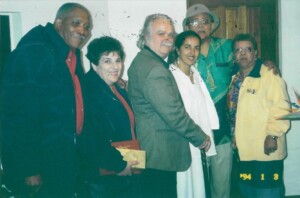
2021: We Still Here
During our 40+ years of organizing, we’ve established regional offices and organizing committees that serve as a base for the organizing in that geographic area. We’ve grown to a training team of over 100 organizer-trainers. Our Trainer Organizer Accountability Council is composed of organizers who serve to develop new trainers and focus on building and maintaining accountable relationships in our network and strengthening our accountability to the principles and to each other.
Since the beginning of the pandemic, our trainer-organizers serve on working groups to support the transition of organizing to the virtual sphere, and to intentionally grow our work and support the ongoing leadership development of people of all ages into the Beyond. As we continue to grow our net that works, we are looking to tighten our connections to each other and strengthening our commitment to an accountable, humanistic, anti-racist movement.
We believe in the power and importance of intergenerational organizing.
Today, the People’s Institute for Survival and Beyond is led by Dr. Kimberley Richards, longtime trainer, educator and organizer with PISAB. As we enter the next chapter of our journey, we are lifted by the gift and opportunity of leadership by a Black woman, whose decades of principled, humanistic organizing spans from Pennsylvania to Mississippi and beyond.
